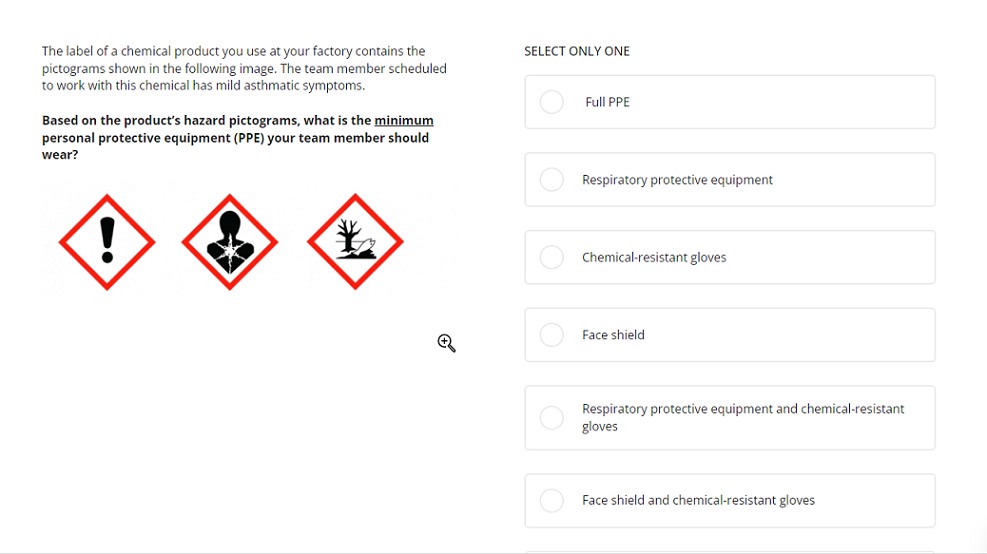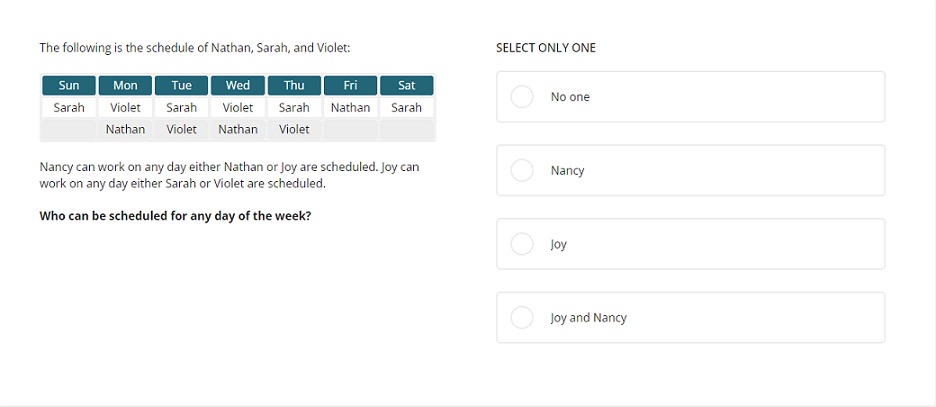Many manufacturing businesses require a production specialist with solid mechanical reasoning skills for their plants, factories, and assembly lines.
However, hiring a good manufacturing specialist requires understanding their skills and qualifications to pick the best candidate for your business.
In this article, we help by discussing the skills your ideal manufacturing specialist brings to the table and how you can write a production specialist job description to ensure you attract the best candidates.
So, what is a production specialist? Before moving on to the manufacturing specialist job description, we need to understand the ins and outs of this role.
Table of contents
What is the manufacturing production specialist job role?
A production specialist – also known as a manufacturing specialist, production control specialist, or senior manufacturing specialist – is a person who is responsible for the quality of products on the assembly line. A manufacturing specialist monitors production and ensures production is safe and correct and the goods are fit for purpose.
They also work on other tasks like identifying and fixing problems in the manufacturing process, and it’s not uncommon for a manufacturing specialist to improve the effectiveness of production to boost profitability. These changes can vary from minor things like equipment adjustments to major changes like overhauling manufacturing processes.
More than 45% of all manufacturing workers have been exposed to workplace hazards, such as excessive noise, so production specialists’ expertise in improving the manufacturing process is particularly important for employee wellbeing.
Production specialist salary
The average salary for a production specialist in the US is $47,743 per year, while a manufacturing process specialist’s salary typically ranges from $41,534 to $55,760 per year, depending on experience (with the lowest figure applicable to entry-level workers).
The highest manufacturing specialist salary can reach highs of more than $70,000, not including bonuses and additional perks, for high-cost-of-living areas like New York.
Key production specialist skills to look for
If you’re looking to hire a production control specialist, you need to ensure they have the necessary hard and soft skills.
Also, when crafting the manufacturing specialist job description, you need to include all of the duties and responsibilities of the role.
After you identify the key skills, use our bias-free assessments to test them. For example, Orbit Technologies uses our tests to hire highly technical engineering candidates and has decreased its attrition rate by 50%.
Manufacturing specialist hard skills
Here are the most important manufacturing specialist hard skills, plus ways you can test them using specific talent assessments to gauge candidates’ skills.
Controlling the production equipment: The candidate can calibrate the equipment so that it operates efficiently, provide quality control for the products, and routinely check the equipment for any malfunctions or defects. Test candidates with a machine-specific test like our CNC Machinist test to evaluate each candidate’s ability to operate, program, and calibrate machines.
Filling out reports and providing production statistics: The worker assists managers and supervisors by providing reports and statistics as needed. They can pinpoint each stage of the production process to third parties.
Providing support to minimize hazards: The job seeker can ensure all equipment and processes meet the latest safety regulations. You can assess your candidates’ ability to create a safe working environment with a GHS Safety test, which also lets you evaluate your prospective production specialist’s ability to respond to emergencies.
Applying new technologies that could improve productivity: The would-be worker can train new employees on the proper use of machines and safety standards and communicate with suppliers to ensure a constant supply of manufacturing materials.
Technical skills: These are a must-have for a production specialist. They should have knowledge of and experience with assembly lines, computer-aided design and manufacturing technologies, computer numerical control (CNC) machines, and general warehouse operations.
If you’d like to learn how to assemble tests into a complete assessment to guarantee your candidates have the required skills, take our product tour.
Production specialist soft skills
Soft skills are as important to production specialists as hard skills, and you should test for them alongside manufacturing assessment tests.
Communication: A production specialist requires excellent oral and written communication skills. They have to communicate with vendors, colleagues, and managers and must be able to do so clearly and concisely to relay essential information.
Discipline: Production specialists need to have a great work ethic and follow the company rules diligently to ensure the safety of their team members and the smooth running of all machines and equipment.
Problem-solving: A manufacturing process specialist should have excellent problem-solving skills because they need to take the initiative to handle a variety of issues relating to equipment malfunctions and the production process.
Have you tried our soft skills assessments?
Level up your recruiting with soft skills assessments from TestGorilla.
The best insights on HR and recruitment, delivered to your inbox.
Biweekly updates. No spam. Unsubscribe any time.
Manufacturing/production specialist job description template
Let’s look at our manufacturing specialist job description template in this section. You can use it to write your manufacturing position descriptions for job boards.
When you use this template, it’s easy to standardize how you structure your manufacturing job descriptions and duties, saving you time and effort.
Production specialist job description: Company introduction
Introduce your company to your prospective senior manufacturing specialist. Share its name, industry, vision, and mission, and describe the products you offer.
Also, describe how production specialists contribute to company success and mention any milestones relevant to them.
Benefits of working with [your company]
Include your benefits – like unlimited PTO, training and development opportunities, and health insurance – in your manufacturing position descriptions. Mention specific perks you offer, such as support for working parents.
Also include any benefits that are important to production specialists, like the opportunity to travel to different branches and locations or work for well-known clients.
Production specialist job brief
[Company Name]
Job Title: [Production/manufacturing specialist]
Reports to: [Operations manager, production manager, warehouse manager]
Position Type: [Full-time, part-time, or contract]
Location: [On-site, remote, or hybrid]
[Salary and benefits information]
Manufacturing specialist responsibilities and duties
Assess the manufacturing process by designing and conducting research programs
Analyze product development costs with a view to minimize them
Develop manufacturing processes to impose and maintain standardized operation and production
Design new processes and products, buy and install new equipment, and integrate with existing machines
Research machine and production requirements to minimize waste and increase production
Develop integrated manufacturing and production systems that work holistically for increased efficiency and output
Establish effective work sequences to maximize production
Plan and organize maintenance to keep machines and equipment in good working order
Train direct reports
Provide quality control
Production specialist qualifications and skills
A great production specialist has the following skills and qualifications:
Required skills and experience
Great customer service to manage daily interactions between clients and the product team and serve as a product expert
An understanding of preventive maintenance best practices
Strong math skills, including being able to solve equations without a calculator
Fluent in [English]
Advanced written communication skills, including the ability to create research materials, presentations, and newsletters
Great oral communication, including training workers on machinery and equipment
A deep understanding of safety procedures and standards
Attention to detail and problem-solving skills, specifically troubleshooting discrepancies and malfunctions
A strong understanding of good manufacturing practices, quality standards, and quality inspection standards
A high school diploma or equivalent
Preferred skills and experience
A bachelor’s degree in engineering, manufacturing, or a related field
One or two years of experience in the manufacturing industry
Safety certifications like food safety or forklift truck qualifications
Ability to safely lift [25] lbs
An understanding of sales, business analysis, and project management
Use skill tests to assess the skills needed for the best production specialist job description
When writing a production specialist job description, you have to identify the skills an effective manufacturing specialist needs.
Manufacturing job descriptions and duties are easy to lay out if you use our assessments to evaluate the key skills of your most successful production control specialist candidates.
Try out our demo to better see how our assessments can help.
Alternatively, take a product tour for an overview of all the skills you can assess when hiring a manufacturing specialist.
Explore our test library without making a financial commitment
Sign up for a free forever plan with TestGorilla, build your own assessments, and explore our expanding test library without making a financial commitment.
Production specialist job description FAQs
Let’s take a look at the most frequent questions they ask to close this dive into manufacturing job descriptions and duties.
What is a production specialist in manufacturing?
A production specialist usually works on the assembly line, where they can monitor production and ensure the goods are fit for purpose. They can also work on other tasks, such as identifying and fixing problems in the manufacturing process.
What is a quality production specialist?
Quality production specialists monitor, inspect, and propose ways to correct or improve a company’s final products and processes to ensure consistency and meet quality standards. Quality production specialists are expecting high job growth since the manufacturing industry spent $201bn in construction spending, a 70% year-over-year increase, to grow the industry in the first half of 2023.
What is the role of a manufacturing specialist?
A manufacturing specialist plans, designs, modifies, and optimizes the production process. They are also responsible for inspecting, maintaining, and repairing equipment and coordinating with other specialists and engineers to implement all product and system requirements, per the production specialist job description.
What are the tasks of a production specialist?
A production specialist coordinates with clients and internal stakeholders to plan and manage the manufacturing activities of a company. They support and collaborate with supervisors to identify workflow requirements and make production plans.
What does a manufacturing operations specialist do?
A manufacturing operations specialist or senior manufacturing specialist manages workflow across all the departments of a company to maximize its efficiency and optimize resources and daily operations. Specific production specialist responsibilities depend on the industry in which the manufacturing operations specialist works.
You've scrolled this far
Why not try TestGorilla for free, and see what happens when you put skills first.


















